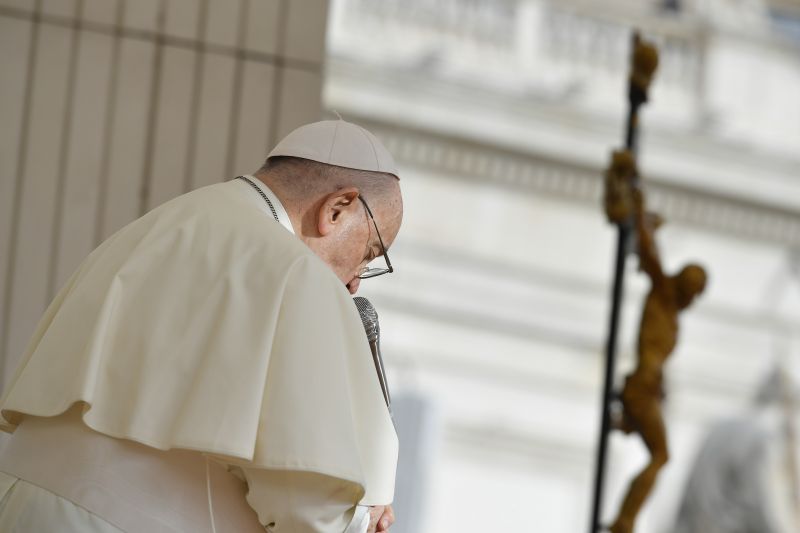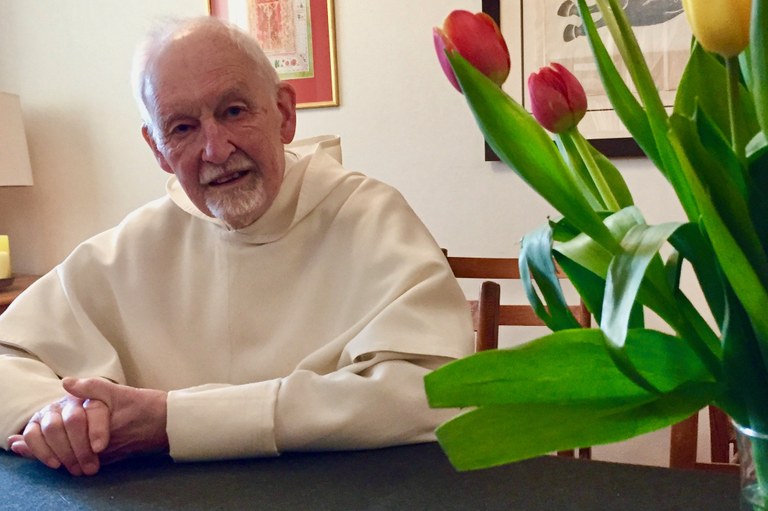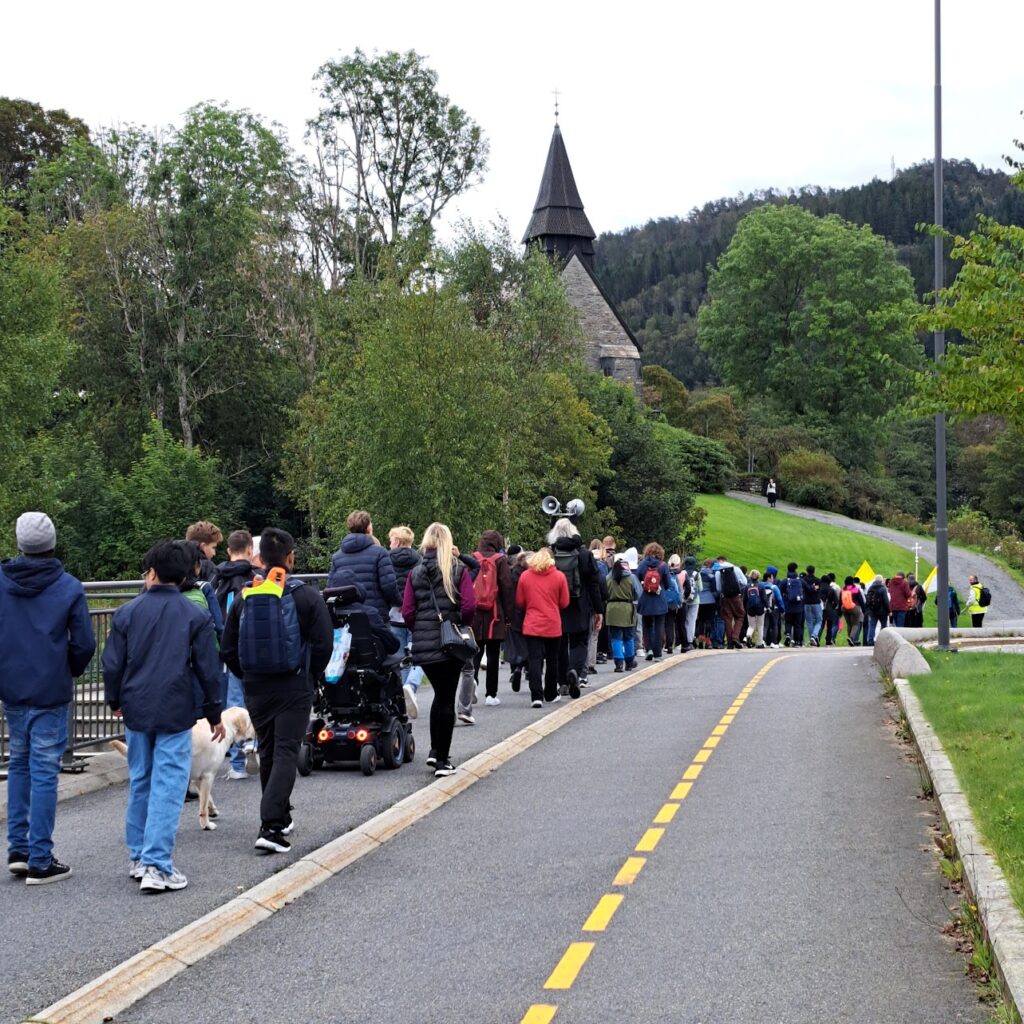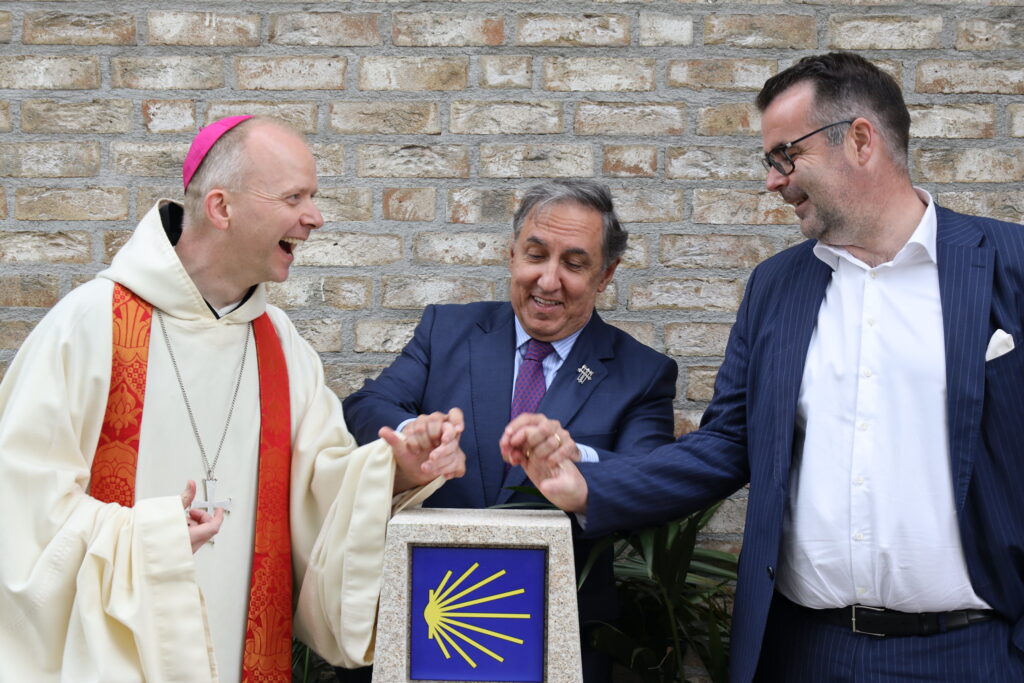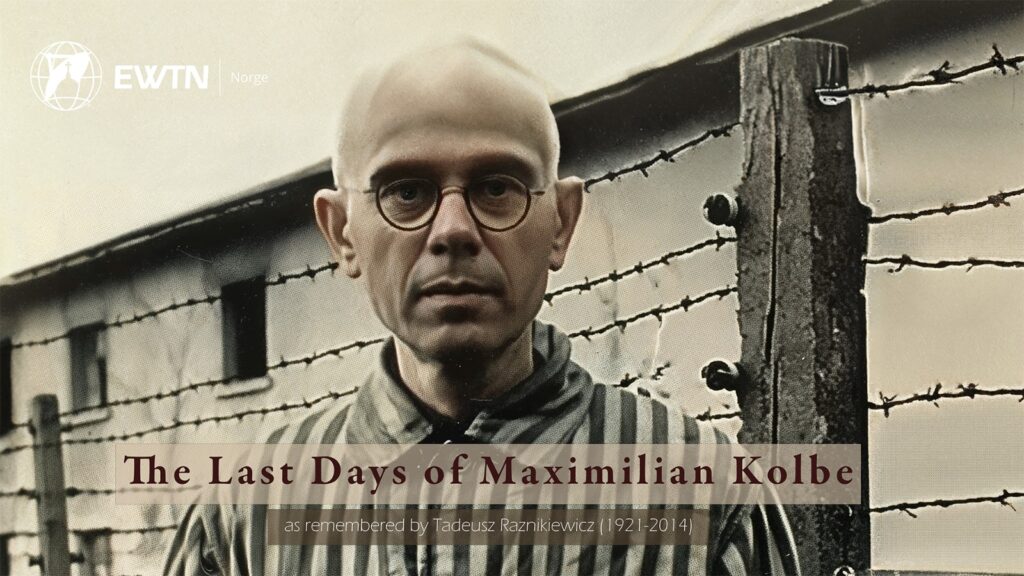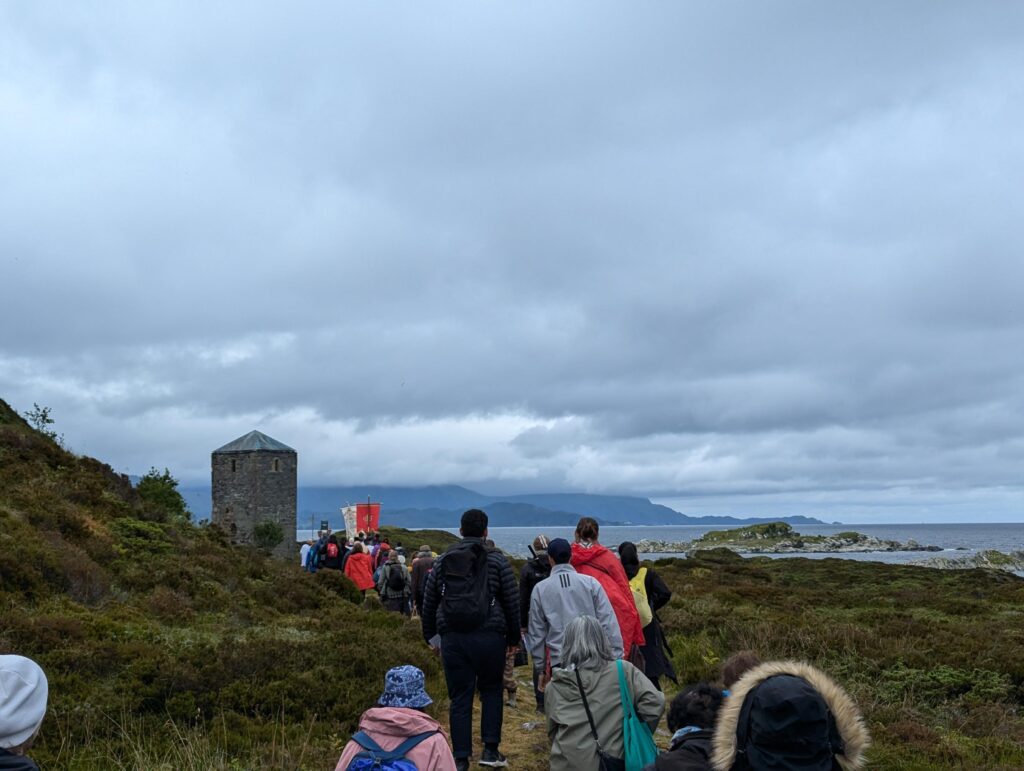Rome Newsroom, Nov 16, 2023 / 15:45 pm (CNA).
Pope Francis on Thursday addressed participants of the study conference “Community Dimension of Holiness,” which had gathered in Rome from Nov. 13–16 at the Augustinian Patristic Pontifical Institute to reflect on the theme of universal holiness.
The Holy Father divided the notion of universal holiness into three main components: “Holiness that unites, family holiness, and martyrdom holiness.”
The pope explained that the vocation to holiness is first and foremost underscored by charity and “therefore it is not only a personal event but also a community one. When God calls the individual, it is always for the good of all.”
The pope reinforced this point by drawing upon the example of St. Thérèse of Lisieux, the Little Flower of Jesus. The pope commemorated the saint in his recent apostolic exhortation C’est la Confiance (“It is Trust”).
“Holiness unites, and through the charity of the saints we can know the mystery of God who ‘united … with every man’ embraces the whole of humanity in his mercy, because everyone, they are one and the same,” the pope said.
The second aspect, family holiness, was featured prominently in the pope’s speech, which he subdivided between the example of spouses and the broader family unit.
“The sanctity of the spouses, as well as the particular sanctity of two distinct people, is also common sanctity in conjugality: therefore multiplication — and not simple addition — of the personal gift of each one, which is communicated.”
The pope tied the second and third aspects of holiness together by making a brief reference to the Ulma family, who were beatified in September. The beatification of the Ulmas was a historic event, as it was the first time an entire family was beatified by the Church. They were killed in 1944 in Nazi-occupied Poland for sheltering two Jewish families during the Second World War.
The third and final aspect of personal sanctity is that of the martyrs, which is “a strong model, of which we have many examples throughout the history of the Church,” the pope said.
The pope underscored the importance of the martyrs of the Church, noting that it is not limited to one specific time and place but instead has existed throughout the entire history of the Church. “There is no period that has not had its martyrs, up to the present day,” the pope said. “Let’s not forget that our time also has many martyrs.”
The Holy Father also noted that this “universal vocation to holiness” was a subject “very dear to the Second Vatican Council.”
In his address the pope made several references to the 1964 Dogmatic Constitution of the Church Lumen Gentium.
The Holy Father noted that since the closure of the council in 1965, the Church has placed special emphasis on the path of communal holiness, which has been reflected in the fact that recent beatifications and canonizations have included more “spouses, celibates, priests, consecrated men and women, and laypeople of all ages, origins, and cultures, including families.”
Pope Francis also took a moment to reference his 2018 apostolic exhortation Gaudete et Exsultate.
“I wanted to draw attention to the belonging of all these brothers and sisters to the ‘holy faithful people of God’ as well as on their closeness to us, as saints ‘next door,’ members of our communities, who lived great charity in the small things of daily life, despite their limitations and defects, following Jesus until the end,” the pope said.

